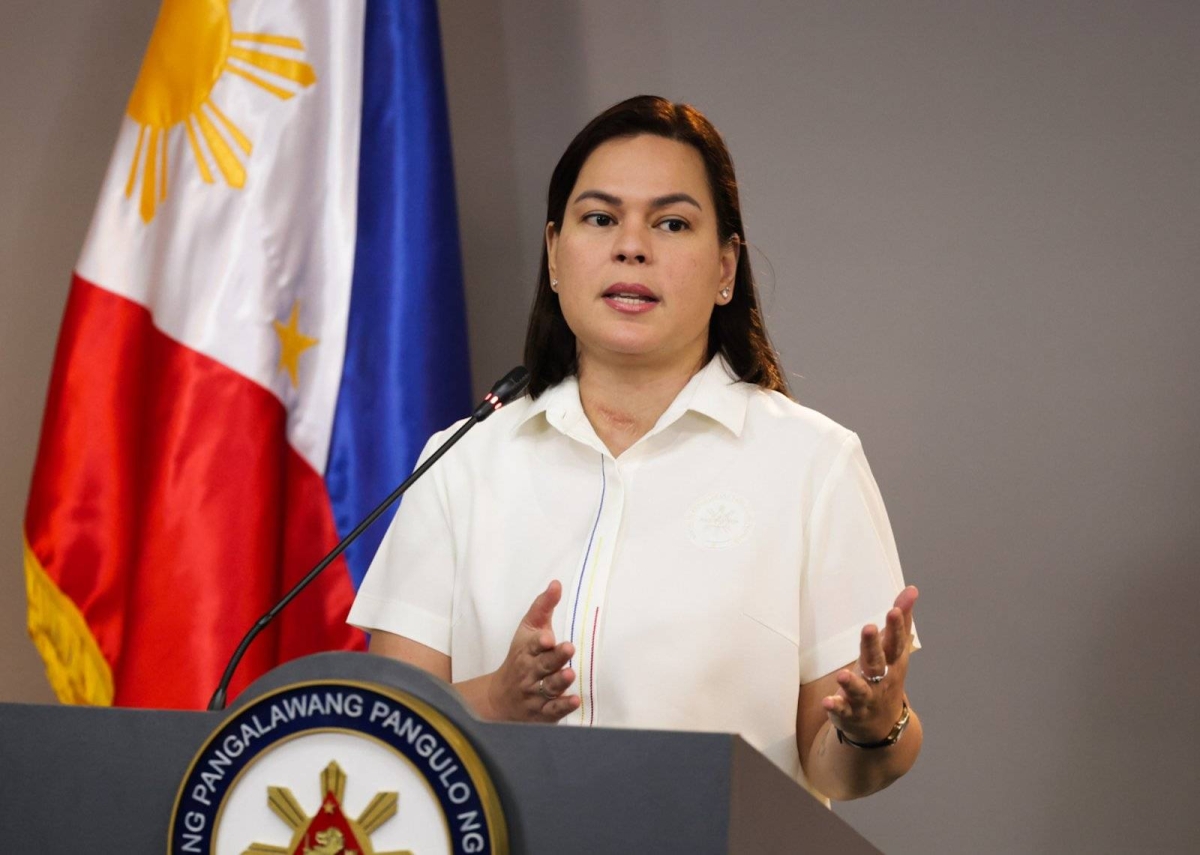Survey shows drop in Marcos, Sara ratings
THE latest survey of Tangere, a public opinion polling company, showed notable shifts in the satisfaction and trust ratings of key government officials. The survey noted a significant decrease in Vice President Sara Duterte's satisfaction and trust ratings. Duterte's satisfaction figure dropped from 45.5 percent to 40.6 percent, and her trust figure is down to 47.0 percent from 53.4 percent. The vice president continues to enjoy robust support from Mindanao, her political stronghold. Duterte's dissatisfaction rating rose from 36.8 percent to 39.0 percent, and distrust climbed from 27.0 percent to 29.0 percent. Respondents from lower-middle-income and low-income classes were key contributors to these increases, reflecting potential discontent among economically vulnerable sectors. President Ferdinand Marcos Jr.'s satisfaction and trust ratings also trended down, albeit less pronounced than Duterte's. Satisfaction decreased from 47.9 percent to 46.2 percent, and trust fell from 60.1 percent to 58.5 percent. Support for the President remained strong among respondents from Northern and Central Luzon, as well as respondents ages 18 to 35 years. Marcos' dissatisfaction and distrust ratings rose, with significant contributions from respondents in the Davao and Northern Mindanao regions, as well as older Filipinos aged over 51. House Speaker Martin Romualdez chalked up increases in both satisfaction and trust ratings. Romualdez satisfaction rose from 47.9 percent to 49.0 percent, while trust increased from 58.2 percent to 59.0 percent. Tangere attributed Romualdez's gains to legislative successes, particularly the recent quad comm hearings, government assistance programs, as well as heightened public awareness. Northern Luzon, Central Luzon and Eastern Visayas showed the strongest support for Romualdez, although dissatisfaction and distrust were higher among respondents from Davao and Northern Mindanao, as well as older age groups. Senate President Francis Escudero saw declines in his satisfaction and trust ratings. Dissatisfaction and distrust levels increased, which Tangere said reflected public concerns over the government's handling of education. The survey showed that 81 percent of respondents prioritized education as a critical issue, emphasizing a gap in addressing public expectations. Escudero managed to maintain his position as the highest-rated top government official, suggesting resilience in his overall approval. Chief Justice Alexander Gesmundo had an increase in both satisfaction and trust ratings, bolstered by a rise in public awareness. His dissatisfaction and distrust ratings remained the lowest among top government officials. The Tangere survey was conducted from Jan. 13 to 16 using a mobile-based respondent application. A sample size of 2,000 participants was selected through a stratified random sampling method with a ± 2.20 percent margin of error at a 95 percent confidence level. The respondents were geographically distributed, with 12 percent from Metro Manila, 23 percent from Northern Luzon, 22 percent from Southern Luzon, 20 percent from the Visayas and 23 percent from Mindanao. Tangere is a member of the Marketing and Opinion Research Society of the Philippines, Philippine Association of National Advertisers and the Philippine Marketing Association.

THE latest survey of Tangere, a public opinion polling company, showed notable shifts in the satisfaction and trust ratings of key government officials.
The survey noted a significant decrease in Vice President Sara Duterte's satisfaction and trust ratings. Duterte's satisfaction figure dropped from 45.5 percent to 40.6 percent, and her trust figure is down to 47.0 percent from 53.4 percent.
The vice president continues to enjoy robust support from Mindanao, her political stronghold.
Duterte's dissatisfaction rating rose from 36.8 percent to 39.0 percent, and distrust climbed from 27.0 percent to 29.0 percent. Respondents from lower-middle-income and low-income classes were key contributors to these increases, reflecting potential discontent among economically vulnerable sectors.
President Ferdinand Marcos Jr.'s satisfaction and trust ratings also trended down, albeit less pronounced than Duterte's. Satisfaction decreased from 47.9 percent to 46.2 percent, and trust fell from 60.1 percent to 58.5 percent.
Support for the President remained strong among respondents from Northern and Central Luzon, as well as respondents ages 18 to 35 years.
Marcos' dissatisfaction and distrust ratings rose, with significant contributions from respondents in the Davao and Northern Mindanao regions, as well as older Filipinos aged over 51.
House Speaker Martin Romualdez chalked up increases in both satisfaction and trust ratings. Romualdez satisfaction rose from 47.9 percent to 49.0 percent, while trust increased from 58.2 percent to 59.0 percent.
Tangere attributed Romualdez's gains to legislative successes, particularly the recent quad comm hearings, government assistance programs, as well as heightened public awareness.
Northern Luzon, Central Luzon and Eastern Visayas showed the strongest support for Romualdez, although dissatisfaction and distrust were higher among respondents from Davao and Northern Mindanao, as well as older age groups.
Senate President Francis Escudero saw declines in his satisfaction and trust ratings.
Dissatisfaction and distrust levels increased, which Tangere said reflected public concerns over the government's handling of education.
The survey showed that 81 percent of respondents prioritized education as a critical issue, emphasizing a gap in addressing public expectations.
Escudero managed to maintain his position as the highest-rated top government official, suggesting resilience in his overall approval.
Chief Justice Alexander Gesmundo had an increase in both satisfaction and trust ratings, bolstered by a rise in public awareness. His dissatisfaction and distrust ratings remained the lowest among top government officials.
The Tangere survey was conducted from Jan. 13 to 16 using a mobile-based respondent application. A sample size of 2,000 participants was selected through a stratified random sampling method with a ± 2.20 percent margin of error at a 95 percent confidence level. The respondents were geographically distributed, with 12 percent from Metro Manila, 23 percent from Northern Luzon, 22 percent from Southern Luzon, 20 percent from the Visayas and 23 percent from Mindanao.
Tangere is a member of the Marketing and Opinion Research Society of the Philippines, Philippine Association of National Advertisers and the Philippine Marketing Association.


















